From the Report on the Work of the Government to the draft Outline of the 14th Five-Year Plan (2021-2025) for National Economic and Social Development and the Long-Range Objectives Through the Year 2035, “rural revitalization” has virtually become a hot topic for this year’s sessions of China’s top legislature and top political advisory body. Deputies to the 13th National People’s Congress (NPC) and members of the 13th National Committee of the Chinese People’s Political Consultative Conference (CPPCC) handed in their pieces of advice and proposal that aim to comprehensively promote the country’s rural revitalization.
Revitalizing the Countryside
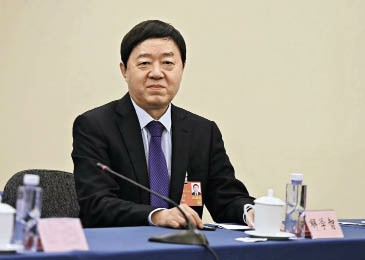
“What solutions will banking financial institutions come up with to tackle the funding difficulties and the high cost of funding for agriculture, rural areas, and farmers? First, we need to make greater efforts in developing universal affordable finances. Second, we need to strength innovative exploration in terms of the forms of financial services, to serve agriculture, rural areas, and farmers with higher quality and greater efficiency. Third, we need to broaden the variety of loan guarantees concerning rural affairs, enabling an efficient connection of all rural assets and financial resources, to better tackle guarantees shortage. Fourth, we need to continue to cut taxes and fees, reduce the cost of funding for agriculture, rural areas, and farmers, and eradicate unreasonable and illegitimate charges.”
— Xie Xuezhi, a member of the Standing Committee of the 13th National Committee of the CPPCC and also former chairman of Agricultural Development Bank of China
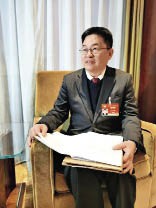
“To realize rural revitalization, the development of rural collective economy is of paramount importance. Here are some suggestions to reach this end: First, vitalize collective assets and maximize land management income; second, develop rural industries by tapping into local advantages so as to boost village-level collective economy; third, properly use industrial and commercial capital and encourage financial institutions to provide services, meanwhile standardizing management of collective assets. In addition, it’s also suggested to guide industrial and commercial capital to flow into sectors related to processing, storage, transportation, and sale of farm produces and products.”
— Song Fengqiang, a member of the 13th National Committee of the CPPCC and also chairman of Henan Green Central Plains Modern Agriculture Group

“We need to speed up the efforts in bridging the digital gap between the urban and rural areas, so as to promote high-quality agricultural development and comprehensive rural revitalization, and allow farmers to better share the dividends of digital economy development. It is advisable to set up new farmer training programs such as those about agricultural technology and e-commerce, in particular targeting “new farmers” who have recently returned to the countryside from the urban areas, start business, as well as those key members of countryside governance. We can systematically develop platforms to promote transparency of government affairs and people-oriented services with rural characteristics. We can also explore digital aids to address the problems related to left-behind children and empty-nest elderly.”
— Ma Huateng, a deputy to the 13th NPC and chairman and CEO of Tencent
Improving the Governance System
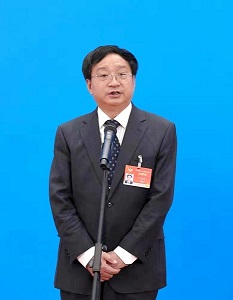
“Food security should always be among the top priorities of our agenda. If we want our people to eat well, our solution must integrate policy support and technological advancement. ‘Chinese grain’ now mainly relies on ‘Chinese seeds,’ but we need to make further improvements on food security. The central government has made arrangements to upgrade our seed industry, while quickening the establishment of a national crop seed bank. The new seed resource bank, which is expected to be completed this year, has a capacity of storing 1.5 million types of seeds, making it the world’s largest.”
— Wan Jianmin, a member of the Standing Committee of the 13th National Committee of the CPPCC, an academician of the Chinese Academy of Engineering, and also vice president of the Chinese Academy of Agricultural Sciences
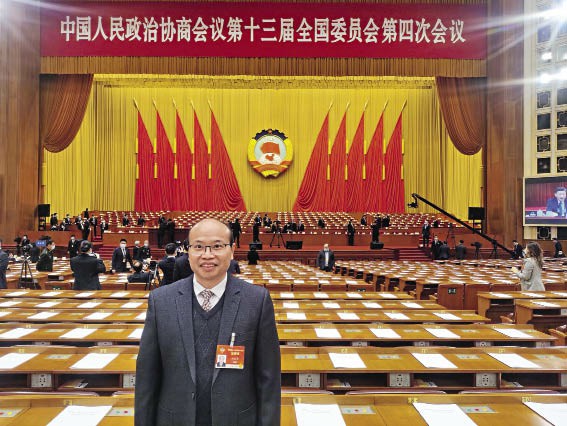
“Cropland protection and administration requires innovative, smart and consistent regulatory and control measures, and effective deterrent punitive policies. My suggestions are as follows: First, establish a cropland protection regulatory and control system that could be universally employed across the nation; second, build a team that undertakes information monitoring on cropland protection; third, create a smart administrative system which connects departments at all levels, thus essentially addressing the problem that monitoring by the higher level is too remote, monitoring by the same level is too lenient, and monitoring by the lower level is too difficult.”
— Liu Muhua, a member of the 13th National Committee of the CPPCC, vice president of the Jiangxi provincial committee of China National Democratic Construction Association, and also vice president of Jiangxi Agricultural University
Seeking Common Prosperity
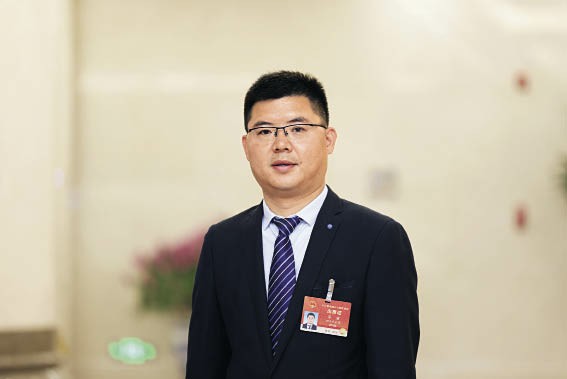
“Rural revitalization is an invaluable historic opportunity for the young generation in rural areas. Meanwhile, without the knowledgeable, visionary, and ambitious young people who return to their hometown, the blueprint of rural revitalization will be merely empty talk. A series of vocational training programs should be put in place for training professional agricultural managers, modern young farmers, managers of new-type agricultural operations, and target farmers in poverty alleviation through agricultural industry. By doing so, it would turn a certain number of small farming households into family farms. We can also promote the development of farmer cooperatives by making greater efforts in developing family farms.”
— Li Jun, a deputy to the 13th NPC and Party secretary of Xiuyun Village in Baiyi Town of Cangxi County in Sichuan Province

“With the Guangdong-Hong Kong-Macao Greater Bay Area coming into being, Dagang Village in Foshan City, Guangdong Province, is embracing a new development opportunity. Since the Hong Kong-Zhuhai-Macao Bridge and the high-speed rail reaching Hong Kong went into service, transport from the mainland to Hong Kong has become increasingly convenient. By shipping products of our village via e-commerce and cold-chain transport to every corner of the greater bay area, we are not only expanding the market of our products in this region, but also broadening its distribution channels of agricultural by-products, thus greatly increasing local people’s income.”
— Liang Debiao, a deputy to the 13th NPC and Party secretary of Dagang Village in Sanshui District of Foshan City












